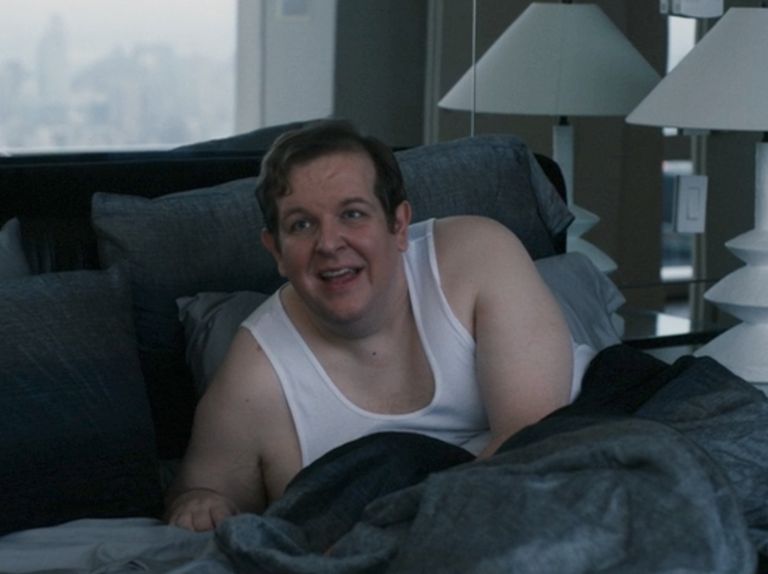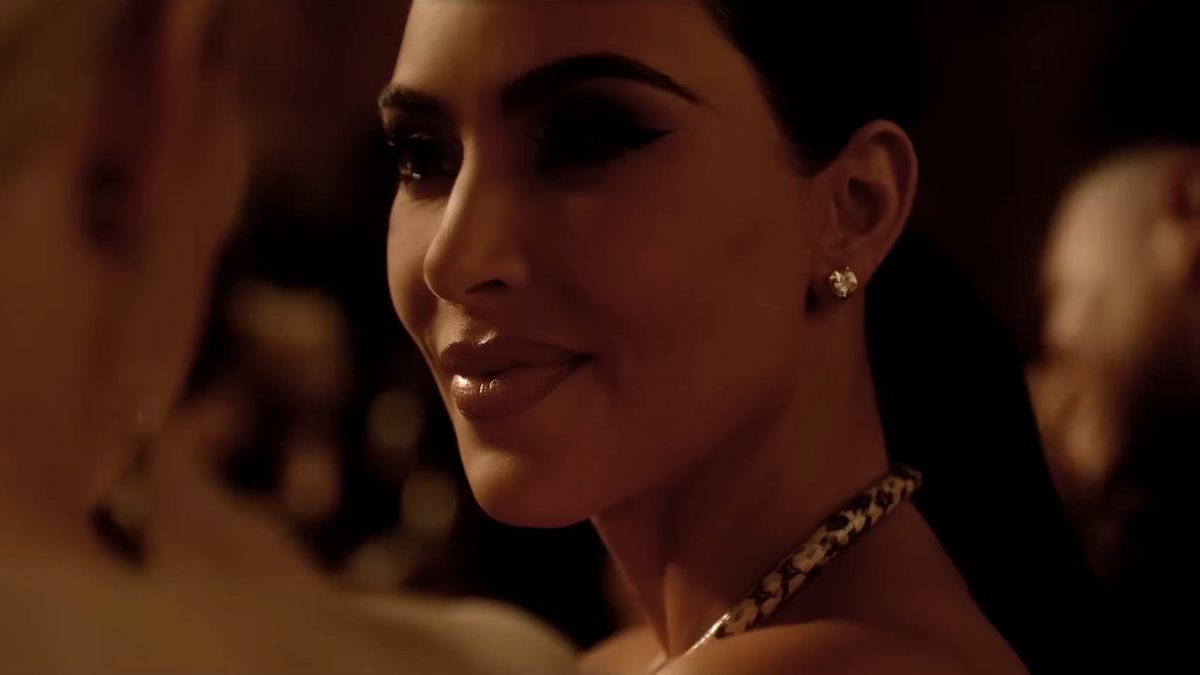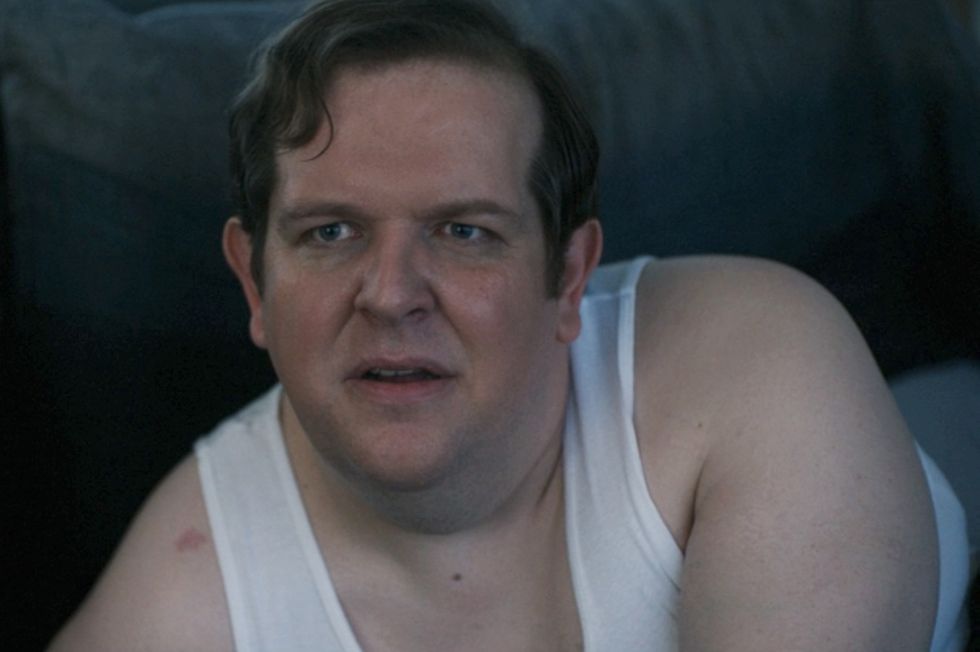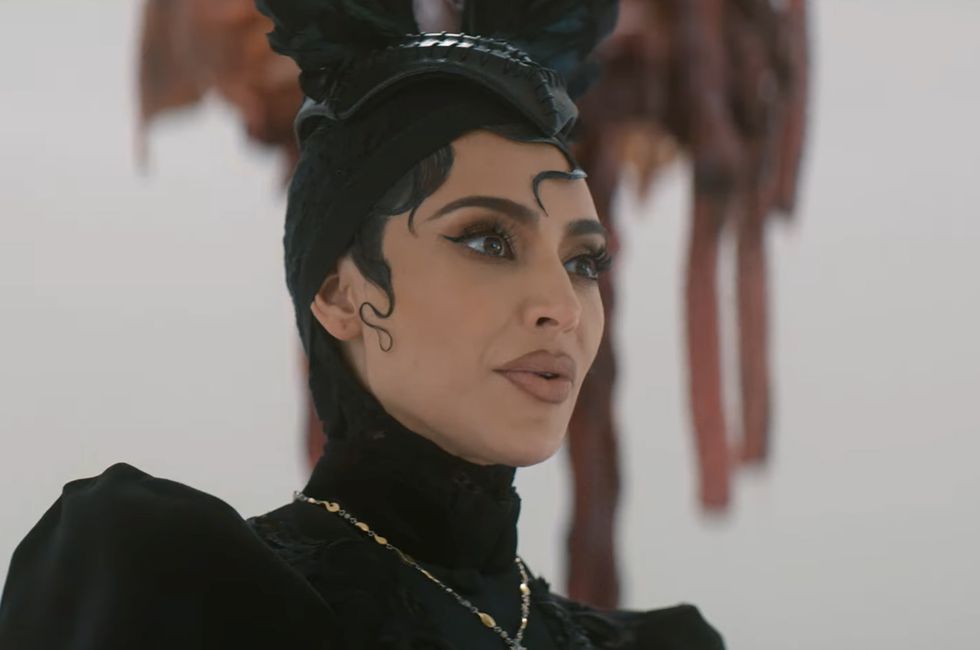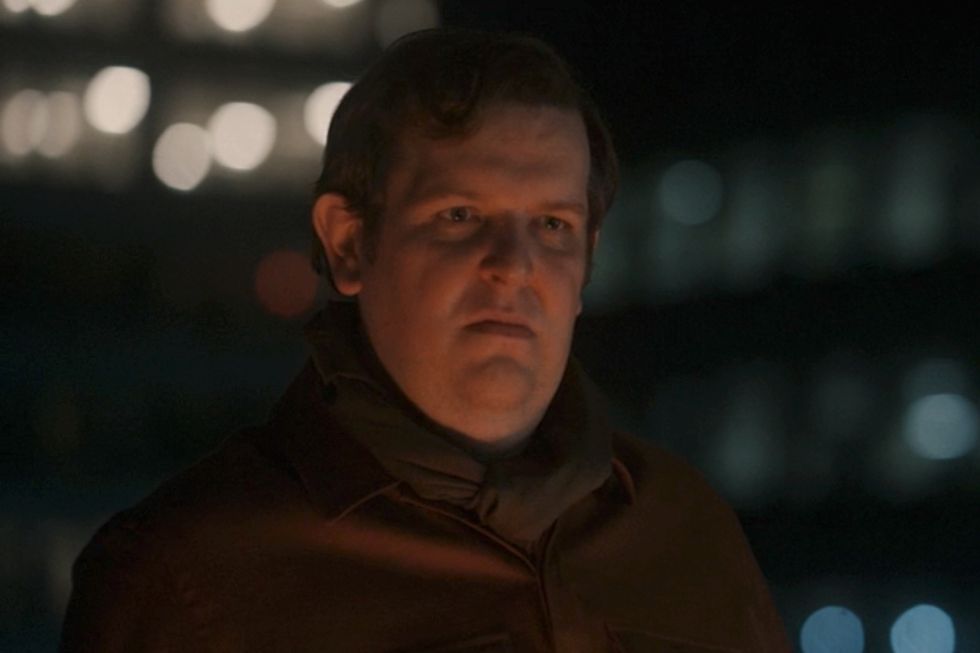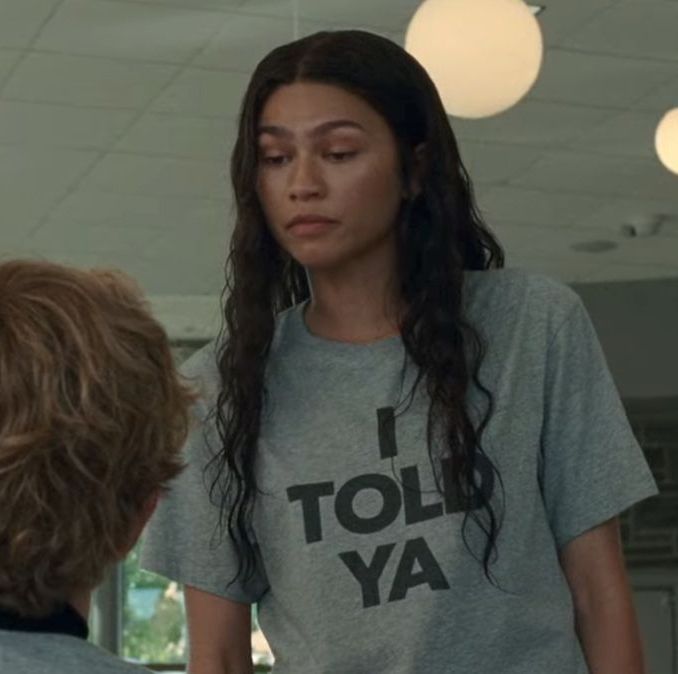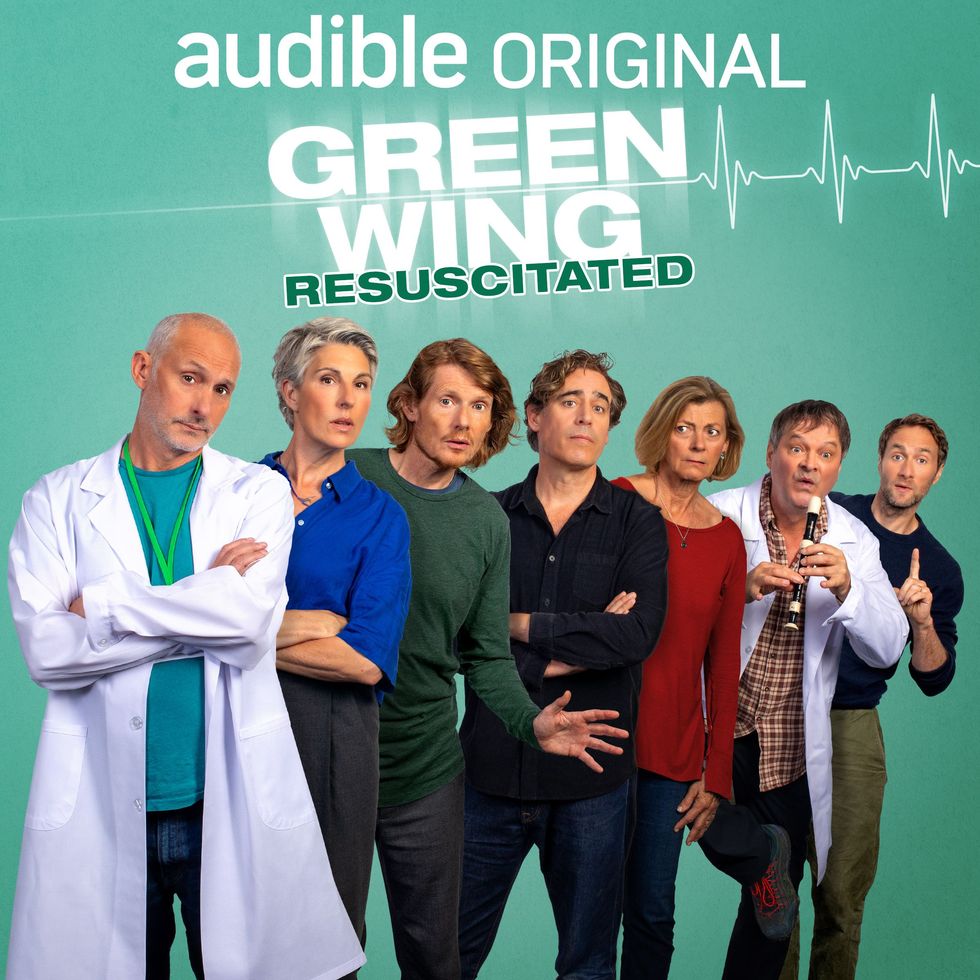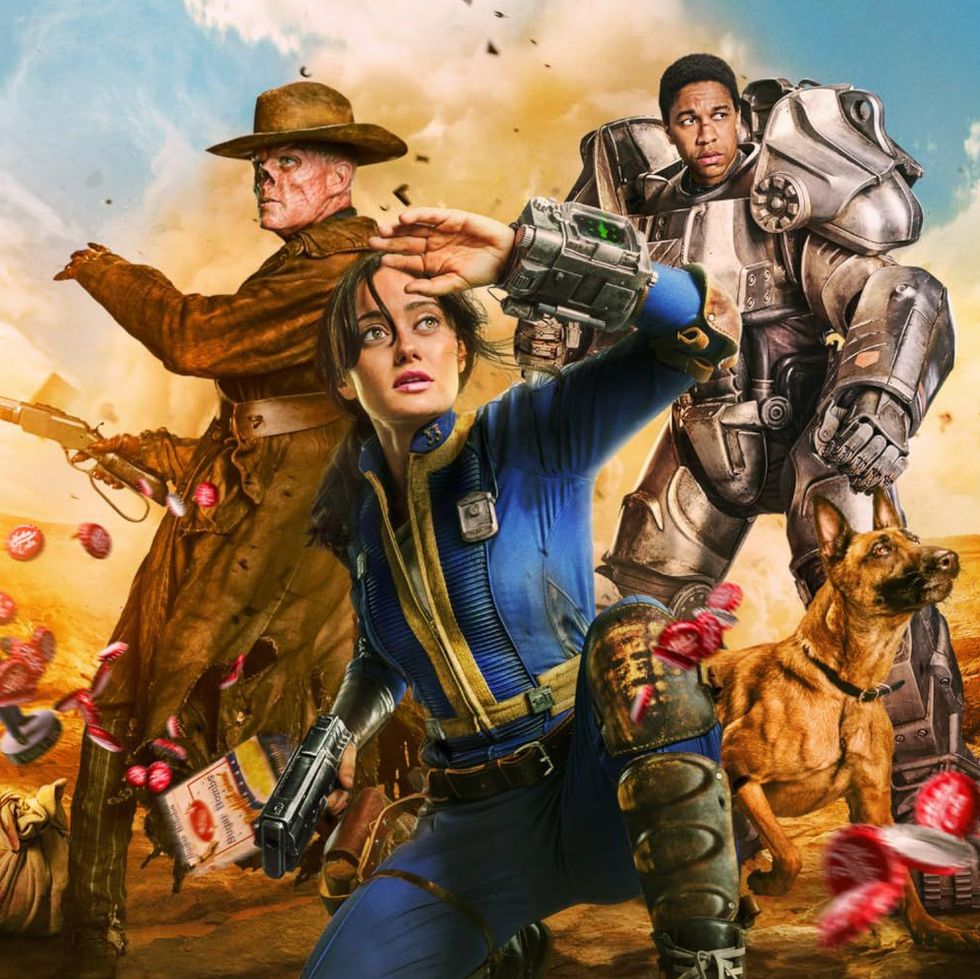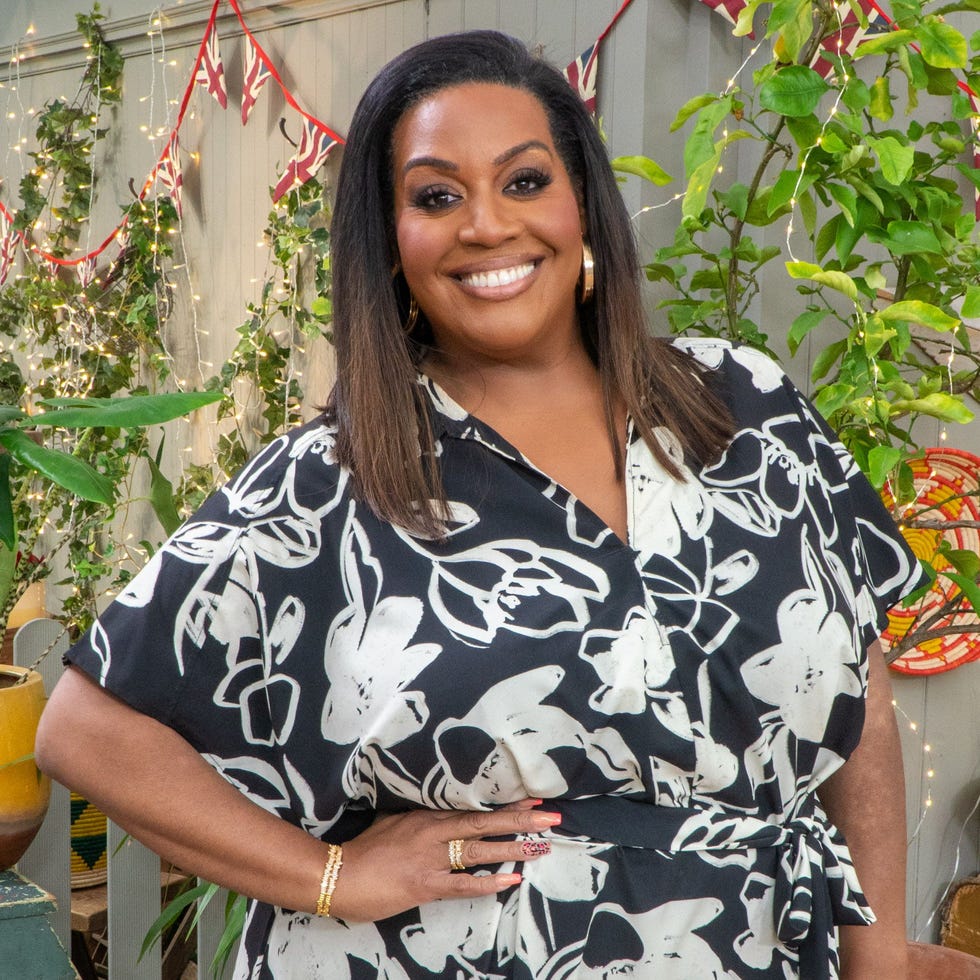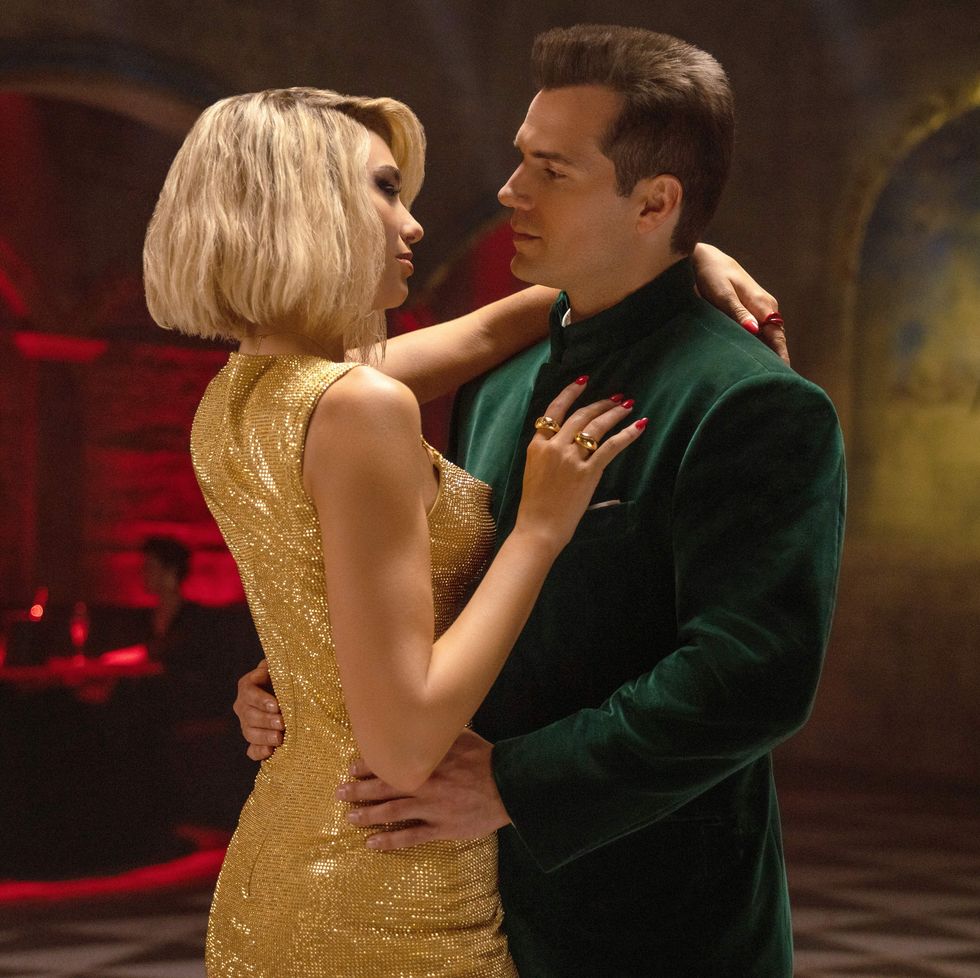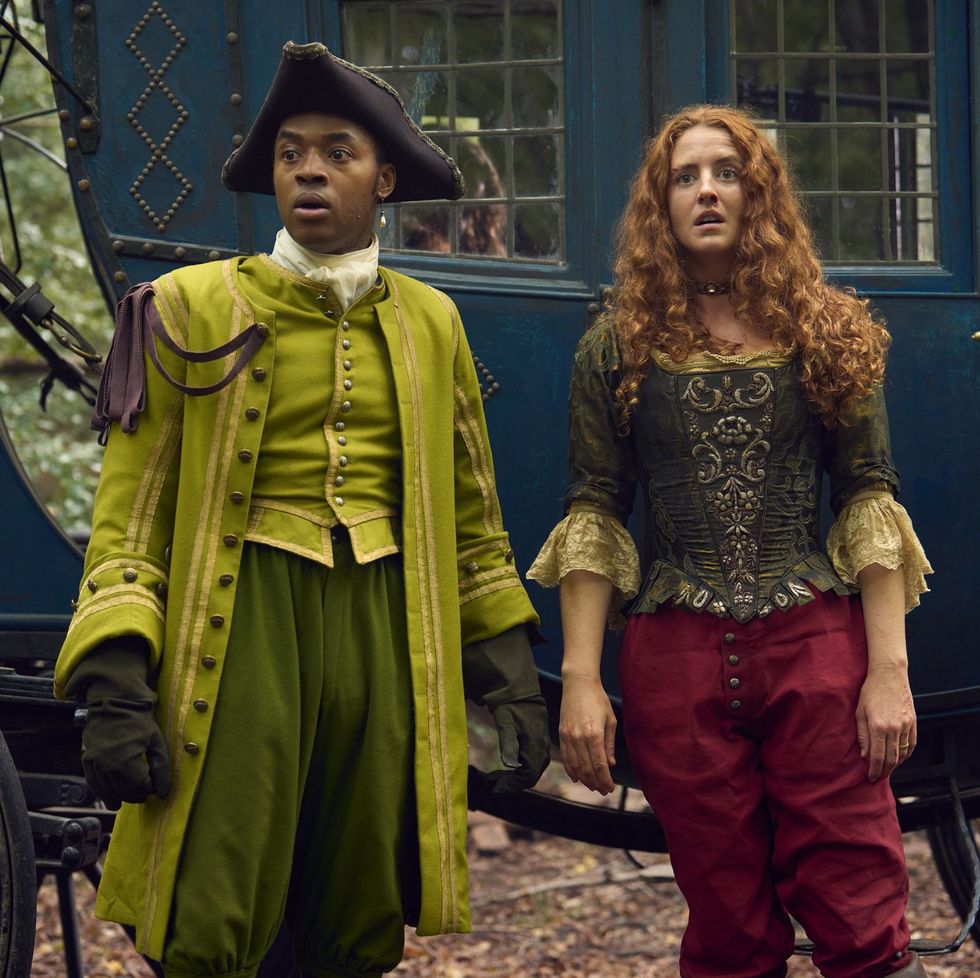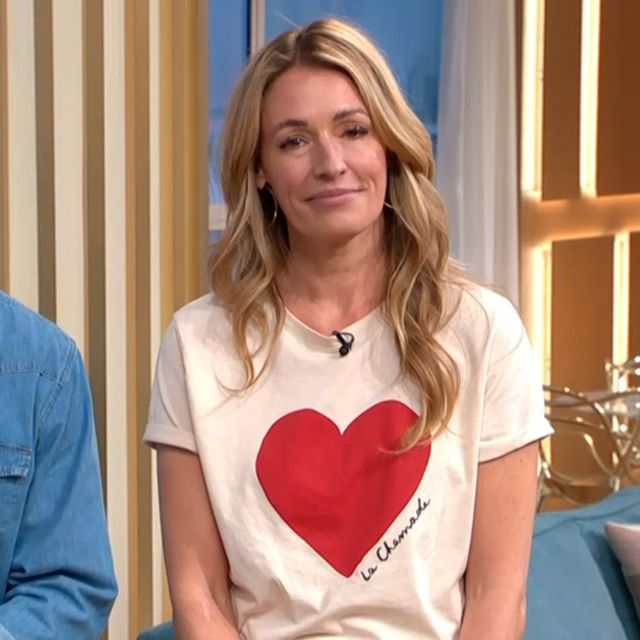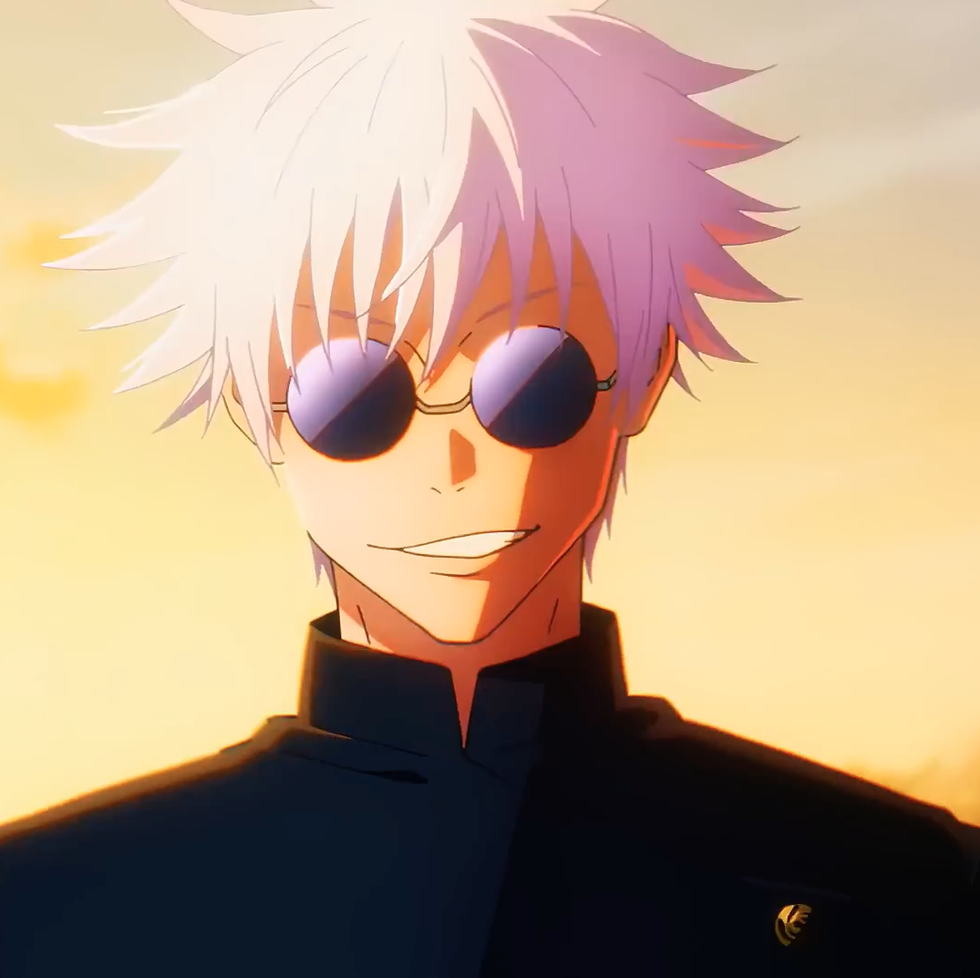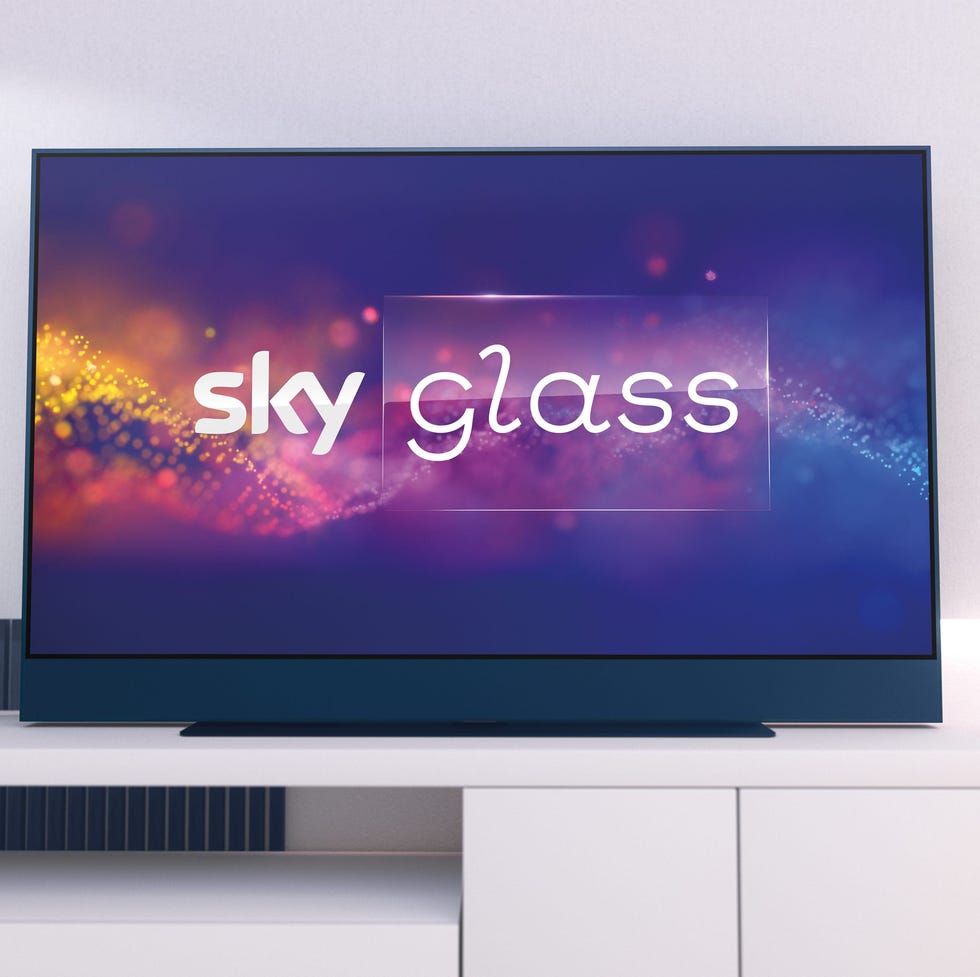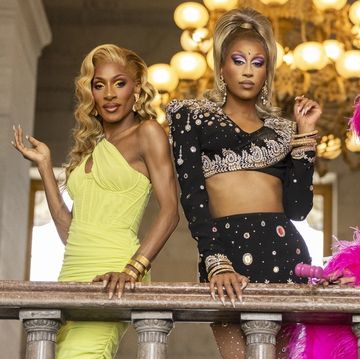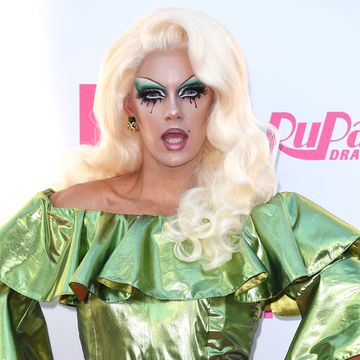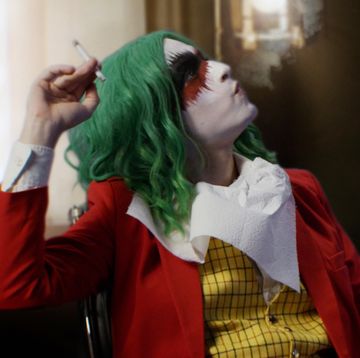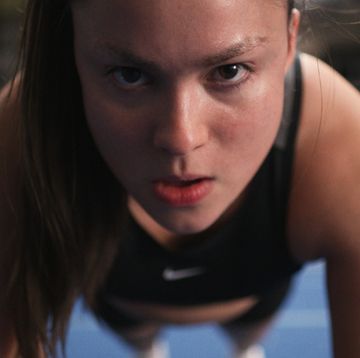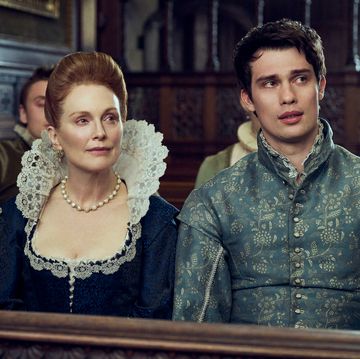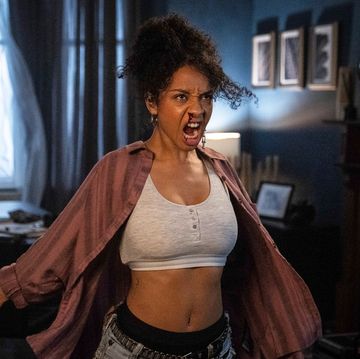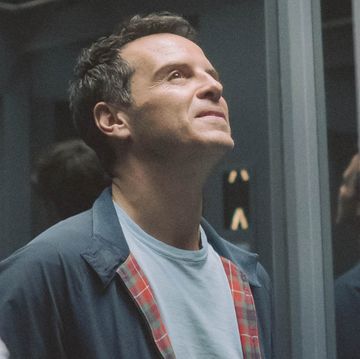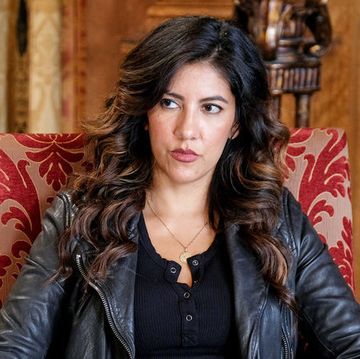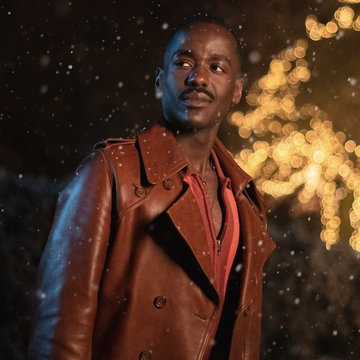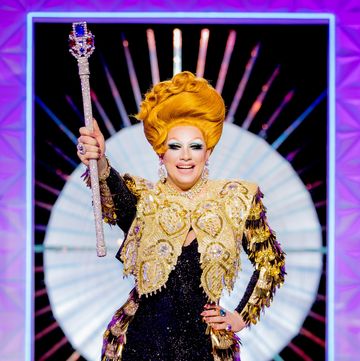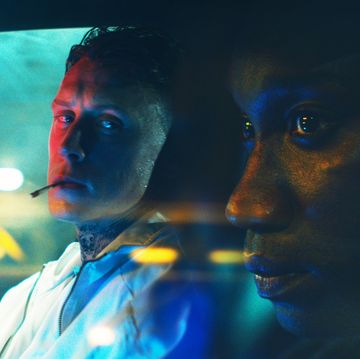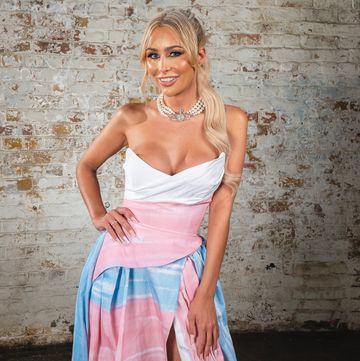Rainbow Crew is an ongoing interview series that celebrates the best LGBTQ+ representation on screen. Each instalment showcases talent working on both sides of the camera, including queer creatives and allies to the community.
Next up, we're speaking to American Horror Story star Dominic Burgess.
Is there a big-name franchise that Dominic Burgess hasn't starred in? From his early start in Doctor Who and a credited (but ultimately cut) part in Batman Begins, the English actor has been in everything from Star Trek and The Flash to The Magicians and Marvel's Agents of SHIELD (not to mention The Good Place, Supernatural and countless more shows).
What connects most of these projects is the fact Burgess doesn't often survive them. Dominic's characters usually wind up dead, and the same is true for his latest part in American Horror Story, a show which Burgess has appeared in not once, but twice (first as a one-off guest role in Apocalypse and then as a recurring character in the latest season, titled Delicate).
Digital Spy caught up with Dominic Burgess to relive his most recent death as Hamish Moss – and at the hands of none other than Kim Kardashian herself. Along the way, we also discussed cruising for Ricky Martin in Palm Royale and navigating camp characterisation in a predominantly heterosexual space.
Your career started with a brief role in a 2005 episode of Doctor Who. What's it like to look back at that time now?
I was always very proactive. I wrote to Andy Pryor, the casting director and I sent him a letter, just to be like, "Hello, I love Doctor Who!"
...That was a pretty fun first TV job to have. It was a lovely experience.
In classic Doctor Who style, let's jump forward in time to Palm Royale, your new Apple TV+ series where you play Grayman, a gay fashion designer working in the late '60s. There's a scene in episode six where he tries to pick up Ricky Martin's character in a bookshop. Who wouldn't, honestly? Talk us through that.
They let us improvise and play around, so I had no idea how this scene was going to end up. We did a version where Ricky walked away and then I followed him. Then we did a version with the construction worker guy.
Sometimes, when you jump onto a show, you have to feel out the set and figure out, "Okay, is this the kind of show where you can approach people? Is this the kind of show where you can bring your own ideas?" This was so wholesome and fun. Ideas could come from anywhere. They let you play and explore.
You could just turn around and be like, "Hey, can I try something? What if I emerge from the bookstore like this or just creep around the corner?"
I think that comes from the top, from the showrunner to the number one on the call sheet, from Kristen [Wiig], and Ricky and Allison [Janney]. That kindness and enthusiasm for the material trickles down into every department and just makes it a whole pleasant experience.
Queer history is often overlooked or erased entirely, so it's interesting to see specifically queer moments in a historical setting, like Ricky's character finding those gay contacts written down secretly in the bookshop.
For Grayman, there was never any conversation with the creatives asking is he or isn't he gay? The assumption is he just is. Grayman is this gay flirty guy. The whole theme of the show is fitting in and finding where you belong. Kristen's character is trying to fit into this society, in this world, and I think Grayman is too.
He's found his place in this society of women who accept him. They say he's a gossip of the worst kind, but he's found his people. They accept him for who he is. When Grayman is in the store and he's working, he doesn't have to hide anything. He can be flamboyant. He can be loud.
To parallel that, I played Victor Buono on Feud. That was also a similar time period. They showed a very different side to homosexuality at that time where Victor was found in an underground theatre that was raided by the police. Bette [Davis] had to come and help him out of jail. It's interesting playing those two characters from that time, but having a very different viewpoint on how sexuality was viewed.
Grayman is camp and flamboyant, which is obviously a very valid queer experience, but there was a time when gay men were caricatured in this fashion. How do you approach queer characters like this without inadvertently playing into tropes or stereotypes?
I enjoy getting into this because I don't know if there's a right or wrong answer to it.
I played a character in Rebel Moon part one. I'm in prosthetics and I have a sleazy encounter with another male actor in a bar. I try to pick them up and there was some backlash to that on the Twittersphere. People were saying that it was a dangerous trope, that it was a stereotype. That gay characters shouldn't be portrayed this way as predators. But as a gay actor, I read that material and brought that to life. So it becomes this quagmire.
I find that there's more liberty and play to explore when there are creators in the LGBTQ+ community, whether that be a showrunner, a director, the writers. When a member of the community is involved in the production, I feel there's liberty to explore with that...
With Palm Royale, they investigate these themes with Ricky's character more as the show goes on. If Grayman was the only gay character on the show, the only angle of representation, then I think it does become more problematic because then it's like, "Look, it's a gay guy!"
When you're not exploring all the facets of that world, then it can become more problematic. If there's more than one queer character, you have more chances to tell different stories and different angles, what it is like to remain closeted and what it is like to try and find love when you're gay in 1969 and you have to remain hidden.
Your other big show at the moment is American Horror Story: Delicate. But this isn't your first time in the AHS universe. How does your recurring role in the new season compare to your one-episode stint as Phil back when you were in Apocalypse?
Apocalypse came around so fast. I had already worked on Feud at that point and then I jumped on to Ryan Murphy's director mentorship programme. I was shadowing Brad Falchuk on 9-1-1 for a couple of weeks, and when I finished, someone dropped out of AHS last minute, or it was a new role that was added. So it was pretty much a day before that I had a call from casting. It was just one day filming down at the Hollywood Forever Cemetery.
I love diving in without having to overthink things sometimes. That's one of the wonderful things about acting, that sometimes I might get a call tomorrow to do something on Friday and I just I don't know, but I'll do it.
Within the world of Ryan Murphy TV. I'm very grateful for Feud and for 9-1-1 and for Dahmer and now Delicate. It's very nice to have a production company or creatives that will keep you in mind for things and not stereotype you or put you in one box. All the characters that I play within the world of Ryan Murphy TV are very different. Some of them are even straight [Laughs].
Speaking of that, what's it been like filming intimate scenes with Kim Kardashian and working with her on set? Kim is such a cultural touchstone, so we imagine it might have been quite surreal?
Kim was so nice. She was professional, she was present, she took direction. She wanted to learn. You work on some sets where they call cut and the actor disappears for two hours in their trailer so you're sort of just waiting. She was there and present. Really nice.
I don't follow Keeping Up With The Kardashians or reality TV really. If I do, it's Project Runway and Survivor. So yes, I was aware that she's known in the stratosphere, part of this Kardashian empire, but that wasn't how she presented herself on set.
Things don't end too well between your character and hers though. Talk us through filming that death scene on the rooftop and getting killed by Kim.
Originally, there wasn't a death scene. We were filming right up until the strike deadline. So half of the season was shot pre-strike. I was going back and forth to New York and I had my episode wrap when you finish your work.
Everything started back up again October, November time, and then I had a call saying, "They need you for your death." So I was flying back to New York to be dead in the aftermath of the confrontation with Kim on the rooftop.
I need to do a death reel, like a Sean Bean death reel, because I'm cranking them up [Laughs]. What we're dealing with right now is long by industry standards.
Anytime I get to do prosthetics and have cuts and bruises and intestines hanging out, that's always fun. It was late at night and then you're sort of dead on the New York sidewalk. There's still people coming by with camera phones who are like, "Oh man, what happened? Is it real?"
I enjoyed that. Anytime you get to be on location is a treat as opposed to green screens and stuff that isn't tangible
We saw an online fan theory suggesting that your two American Horror Story characters could be connected somehow. What do you think of that?
I don't think so. The thing is, there's so much secrecy involved in so many productions.
In Palm Royale, I would get the scripts, but sometimes for American Horror Story, you only get the scene that you're involved in. I never got the script for Rebel Moon. You just get the scenes that you're involved in, so then you don't have a larger framework of context for it. I wish productions would give you more information to play with, to tangibly exist in that world.
You've starred in so many incredible projects and big-name franchises over the years. Looking back, what are you most proud of?
Star Trek for me was my big one because I used to race home from from high school and watch The Next Generation. Just to exist in that world, to have a scene with Patrick Stewart and to be directed by Jonathan Frakes was my, "Oh, I've done it."
Star Trek was one of those shows, like X-Files and Twin Peaks and 24, that was one of the driving forces for me to want to come and work in America. So that, for me, has a very special place in my heart.
I try and take great things away from any production, whether it's a relationship that you can develop with another cast member or someone on the crew. Nine times out of ten, there's something great that you can take out of any experience.
Looking back again, is there a particular moment of queer representation onscreen that really resonated with you early on as a gay man?
Casualty was one of those shows that I watched from a young age. One of the first gay characters that I was ever introduced to in a regular capacity was Sam [Colloby] on Casualty. He ended up getting pushed over a balcony.
I know it sounds trite, but Casualty has always been very good at telling progressive stories. That would have been one of the first examples of watching something regularly on a Saturday night that I could identify with.
And then, of course, a lot of British gay society tuned in after hours, lights down, a finger on the remote control, when Queer As Folk came on. Then "Oh, no, someone's coming up the stairs!" So very clandestine and hidden.
And then, I don't think it was until I got to America... There was a show called Looking and there was a character Daniel Franzese played, a bigger guy who was comfortable in his sexuality and his own skin. I was like, "Oh, look. There's this bigger bear kind of character who's dating this other guy."
It's such a great example because it's still so rare to see queer representation on screen that doesn't revolve around these chiseled, muscular and idealised – yet mostly unattainable – body types.
It's still hard to find. Going back to earlier, when it comes to straight creatives and their idea of what a gay person is, a lot of the time it's chiselled jaw, designer stubble, high fashion. There's a whole spectrum of the LGBTQ+ community who have different bodies, shapes, sizes, and I would just love to see more.
American Horror Story: Delicate streams on Disney+ in the UK and Hulu in the US.
After teaching in England and South Korea, David turned to writing in Germany, where he covered everything from superhero movies to the Berlin Film Festival.
In 2019, David moved to London to join Digital Spy, where he could indulge his love of comics, horror and LGBTQ+ storytelling as Deputy TV Editor, and later, as Acting TV Editor.
David has spoken on numerous LGBTQ+ panels to discuss queer representation and in 2020, he created the Rainbow Crew interview series, which celebrates LGBTQ+ talent on both sides of the camera via video content and longform reads.
Beyond that, David has interviewed all your faves, including Henry Cavill, Pedro Pascal, Olivia Colman, Patrick Stewart, Ncuti Gatwa, Jamie Dornan, Regina King, and more — not to mention countless Drag Race legends.
As a freelance entertainment journalist, David has bylines across a range of publications including Empire Online, Radio Times, INTO, Highsnobiety, Den of Geek, The Digital Fix and Sight & Sound.
